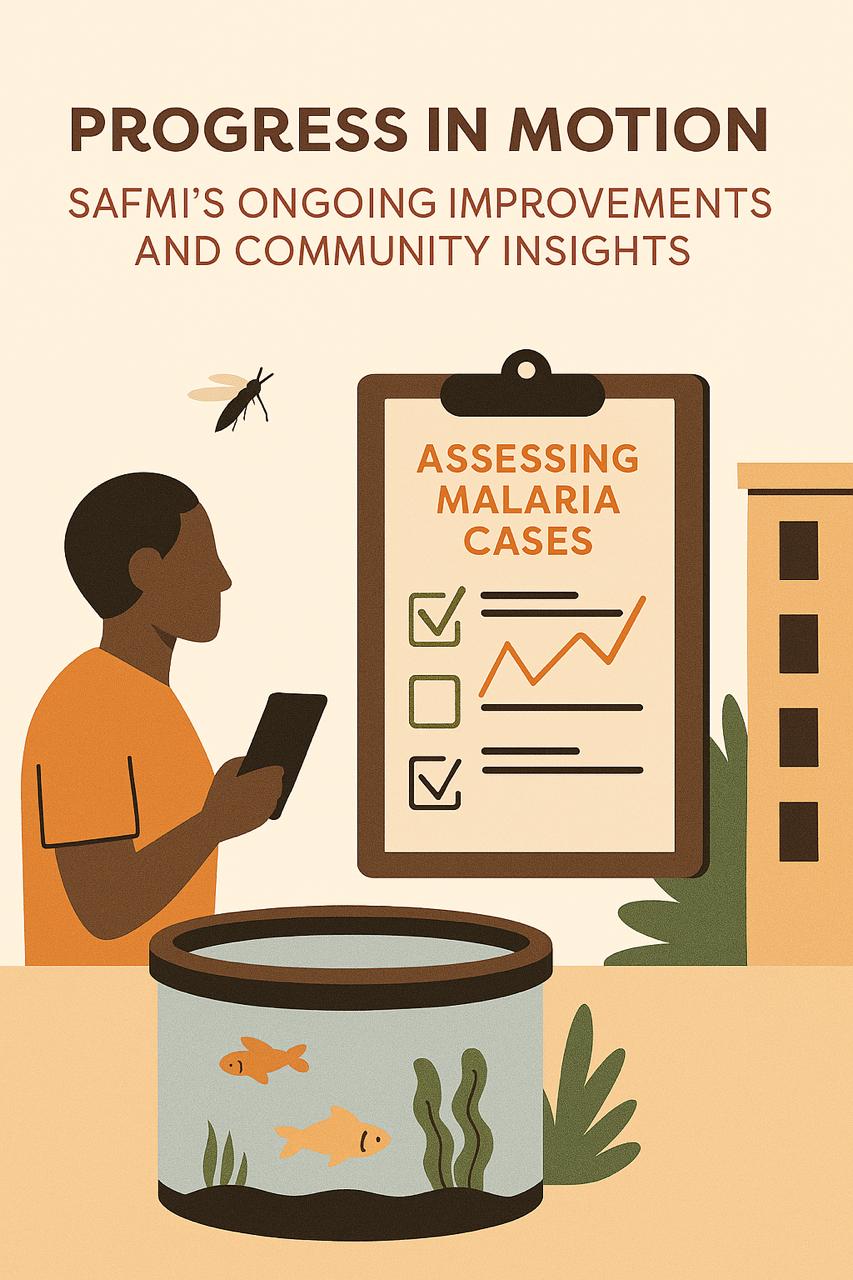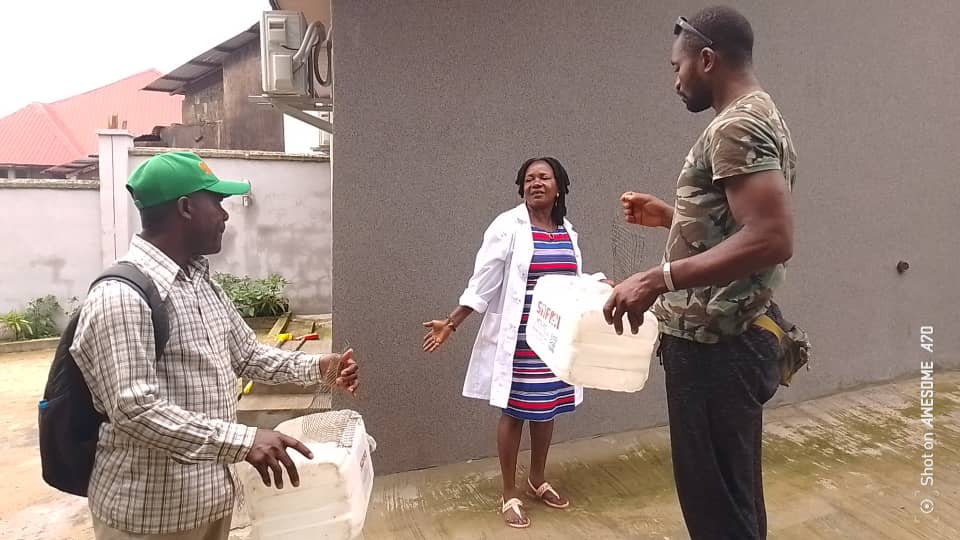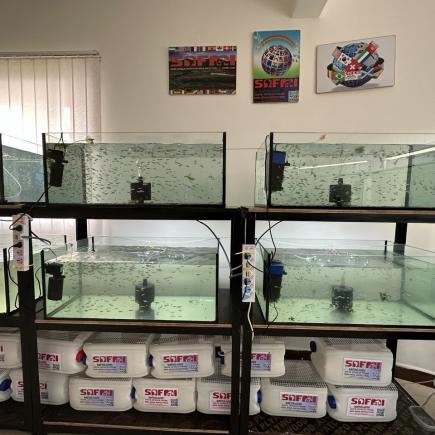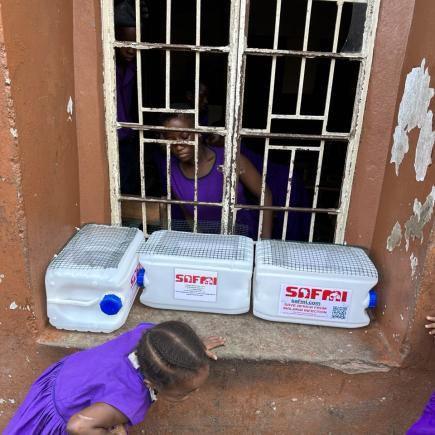Across Sierra Leone, discarded 5-gallon (roughly 20-liter) plastic tanks—originally used to store vegetable cooking oil—are an increasingly visible part of the landscape. These small high-density polyethylene (HDPE) containers are found in backyards, roadside dumps, and riverbanks, contributing to a growing environmental problem. According to the UN Environment Programme (UNEP), Sierra Leone produces over 130,000 tonnes of plastic waste each year, yet only around 5% of it is formally recycled. The rest ends up in open environments, where it poses long-term risks to public health and ecosystems.
At SAFMI, we saw potential in what others discarded. A simple solution that turns these waste containers into reservoirs for mosquito-eating fish. We purchase used vegetable-oil tanks from local traders, clean and disinfect them using eco-friendly soaps and detergents. Further, we cut the top of the tank to allow mosquitoes easily access the stagnant water. After putting on stickers with instruction of how to take care after fish, we deploy them across communities as water stations seeded with Gambusia affinis. These small tanks, placed near homes, clinics, and schools, become simple but powerful tools in the fight against malaria. While their size is modest, the environmental and health risks posed by abandoned oil tanks are significant. According to a study published in the International Journal of Environmental Research and Public Health, residues of vegetable oil and moisture left in reused plastic containers promote bacterial biofilms, which compromise water safety. In tropical climates, where UV exposure is intense, HDPE containers also degrade faster. As stated in Science of the Total Environment, this degradation releases plasticisers, colorants, and other additives into surrounding soils and water sources. These substances, often classified as persistent organic pollutants (POPs), can have long-lasting ecological effects. Although each tank holds only about 20 liters, their impact is cumulative. In 2024, SAFMI repurposed over 1,800 such tanks, helping to eliminate an estimated 8 tonnes of unmanaged plastic from the environment. Additionally, in many cases, these discarded 5-gallon tanks collect rainwater and create ideal breeding grounds for Anopheles mosquitoes, amplifying the spread of malaria in vulnerable communities.
SAFMI’s intervention is based on circular-economy principles. We support small-scale traders and informal collectors by purchasing tanks that would otherwise have no value. Only tanks with verifiable food-grade use (vegetable oil) are accepted—any that previously held fuel, chemicals, or industrial substances are rejected, as those might negatively affect fish. In addition, during the high heat, water mixed with chemicals evaporates posing a threat to people. Our cleaning standards follow WHO guidelines for safe water storage and draw on protocols outlined by the Plastic Drum Institute.
Re-using 5-gallon vegetable-oil tanks is a low-cost, replicable solution that directly advances multiple Sustainable Development Goals: improving health, reducing waste, and supporting livelihoods. By 2026, SAFMI aims to expand this programme and convert an additional 10,000 tanks—enough to protect an estimated 500,000 people while removing over 90 tonnes of plastic from circulation. Together, we can turn one of the most common sources of plastic waste into a life-saving public health tool—one 5-gallon tank at a time.
info@safmi.com
+232 72-111-555


.png)



